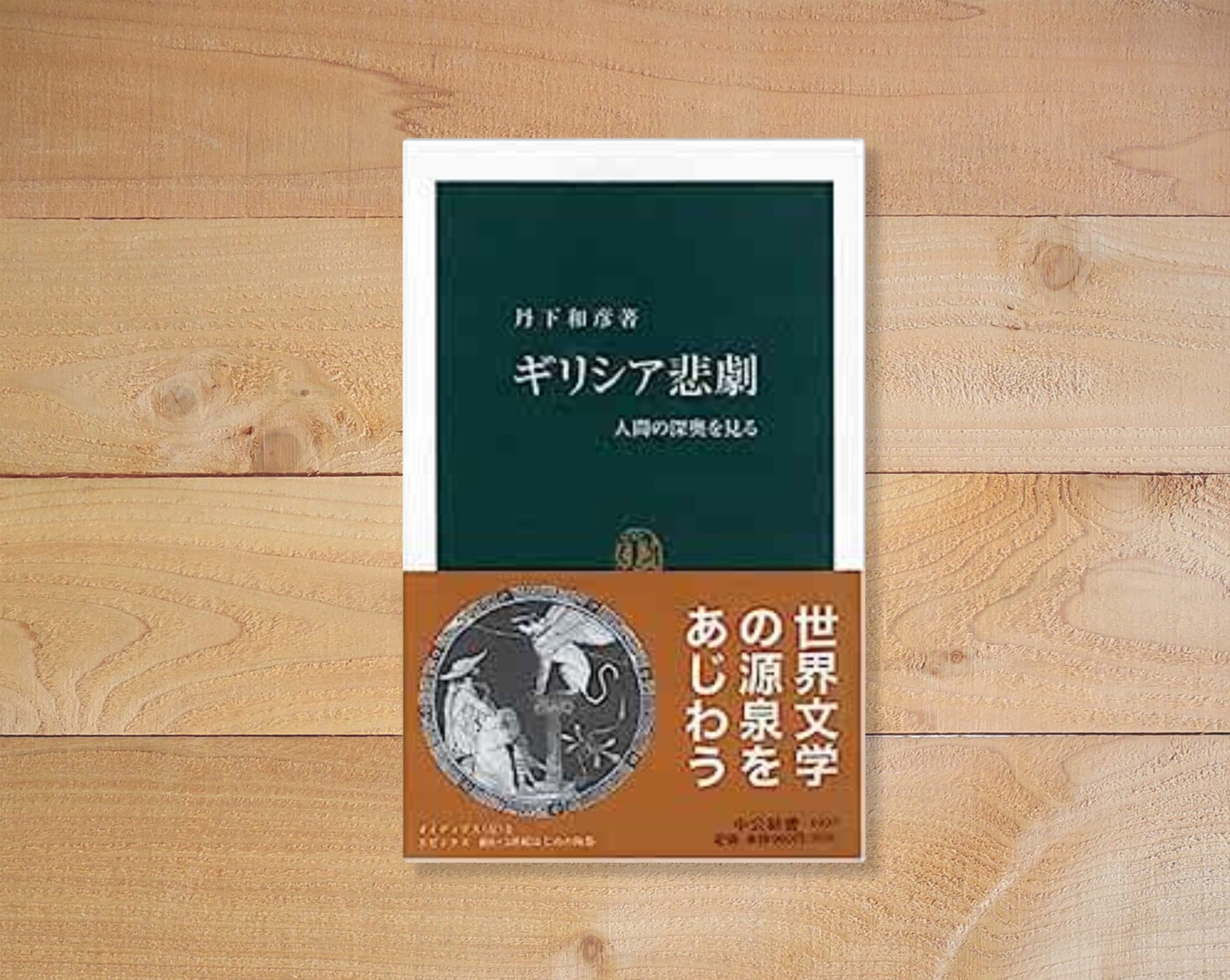Overview and Comments on Kazuhiko Tange's "Greek Tragedy" - A recommended introduction to the depth of Greek tragedy.
Introduced here is "Greek Tragedy" by Kazuhiko Tange, published by Chuokoron Shinsha in 2008.
Let's take a quick look at the book.
Only 33 Greek tragedies have survived to posterity, and all of them were created and performed in the fifth century BC. Why is it that these plays, which were inseparable from the uniqueness of the Athenian polis in terms of their religious, literary, and social characteristics, maintain their universality for thinking about human beings even in different times and places? This book explores the fascination and depth of these plays by delving into the rich contents of a representative collection of eleven plays.
AmazonProducts Page.
Greek tragedy is slightly less well known than Greek mythology, including Homer's Iliad and Odeyseia.
While "Oedipus the Great," which features the Sphinx, is by far the most well-known, many people may be surprised to learn about other tragedies.
I was one of them, and although I knew the word "Greek tragedy," I knew very little about what kind of works they were and what kind of history they had.
I used to be a fan of Tolstoy'sWar and Peace."Homer's from the flow ofThe Iliad.andThe Odyssey.I read the following.
At that time, I was struck by the fascination of Greek mythology, but I had not yet gotten around to the tragedies.
In the process of learning about Shakespeare, I came to know about the productions of "Princess Media" and "Greeks" directed by Yukio Ninagawa. Greek tragedy has a great significance not only in Shakespeare's plays, but in theater as a whole. If so, I wanted to learn about Greek tragedy, so I decided to pick up this book.
In this work, you will first learn about the origins of Greek tragedy and its flow in the introduction.
From there, the flow of the book, in chronological order, examines the depth of Greek tragedy through the works of Aeschylus, Sopocles, and Euripides, the major figures in Greek tragedy. I appreciated this because it explains very clearly how the content of tragedy changed over time.
However, this book carefully examines the details of these tragedies, so it can be read by those who know nothing about Greek tragedies, but I felt that it would be a bit difficult to read this book out of the blue. However, I felt that it was a bit difficult to read this book out of the blue. I think it would be easier to get into the book if you have some knowledge of Greek mythology.
I have been reading about Greek mythology in Atouda Takashi's'For the Enjoyment of Homer.'and "Do You Know Greek Mythology? By reading these books, I was able to have some prior knowledge of the people in Greek tragedies, the background of the myths, and the history. Without them, reading this book might have been a bit more difficult.
Therefore, I recommend that you read an introductory book on Greek mythology before starting this book. I think you will enjoy this book much more if you do so.
Greek tragedies are well-known by name, but their contents are not well known. This is a recommended introductory book to learn the depth of Greek tragedy.
The above is "Kazuhiko Tange's "Greek Tragedy" - A recommended introduction to learning the depth of Greek tragedy.
Click here to read the previous article.
Related Articles







































